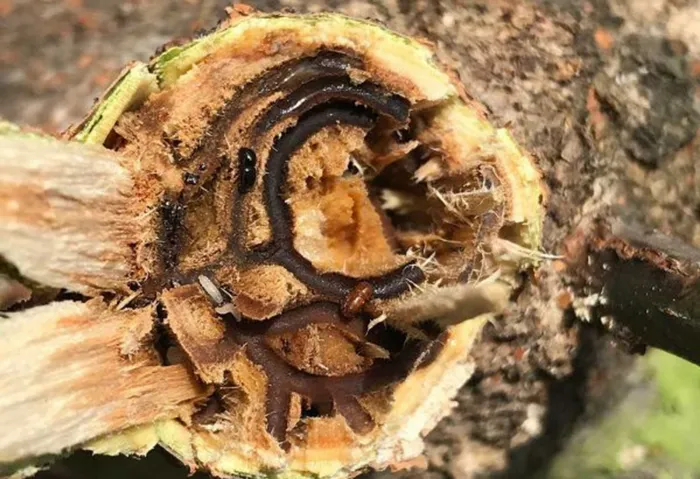Tree in Durbanville infested with invasive borer beetle

The Boxelder and Sweet Viburnum tree was found to have been infested with borer beetle in Durbanville. Picture: City of Cape Town.
The samples taken from a Boxelder and Sweet Viburnum tree on a private property in Durbanville tested positive for the invasive Polyphagous Shot Hole Borer beetle (PSHB), the City said.
The latest infestation is the first to be discovered in this area, the City said in a statement, adding that several other trees including English Oak, Liquid Amber and Chinese Cottonwood on the same property and the neighbouring property have also been found to have symptoms.
The PSHB poses a threat to Cape Town's urban forest as infested trees have to be chipped.
“At this point, we cannot confirm the number of infested trees in the Durbanville area as a whole, as surveys are currently under way.
“I am urging all private land owners in Durbanville to urgently inspect the trees on their properties for symptoms and to contact us immediately should any of these be visible on any trees,” said Eddie Andrews, the deputy mayor and mayoral committee member for spatial planning and environment.
He requested residents to give the City teams an access to their properties so that they can determine the extent of the PSHB infestation.
Communication regarding training session for Durbanville residents will follow in due time, the City said.
It said Boxelder is an ideal tree that can be used as an indicator of an early infestation in a new area. All landowners across the City with Boxelder trees on their properties are urged to notify the City by logging these trees here.
The City added that more than 6000 trees have been infested across the Cape Town in areas such as Eerste River, Rondebosch and Helderberg among others.
Symptoms of infested trees are:
• Branch dieback – cracks on the branch; discoloured leaves; dry and leafless branches; branch break-off revealing webs of galleries filled with black fungus
• Gumming – blobs of goo coming out of the bark; oozing of liquid and gum from the beetle holes
• Entry and exit holes – very small holes on the bark of the tree, the size of a sesame seed (2mm); shotgun-like scars developing around the holes
• Staining – brown or dark stains on the bark of the tree
Infested trees must be chipped on site and may not be removed from the property as the removal of the chipped wood will spread the pest to other areas. Do not buy and move fire wood from areas where trees are infested.
For more information contact the City at 021 444 2357 or send an email to: invasive.species@capetown.gov.za
Related Topics: